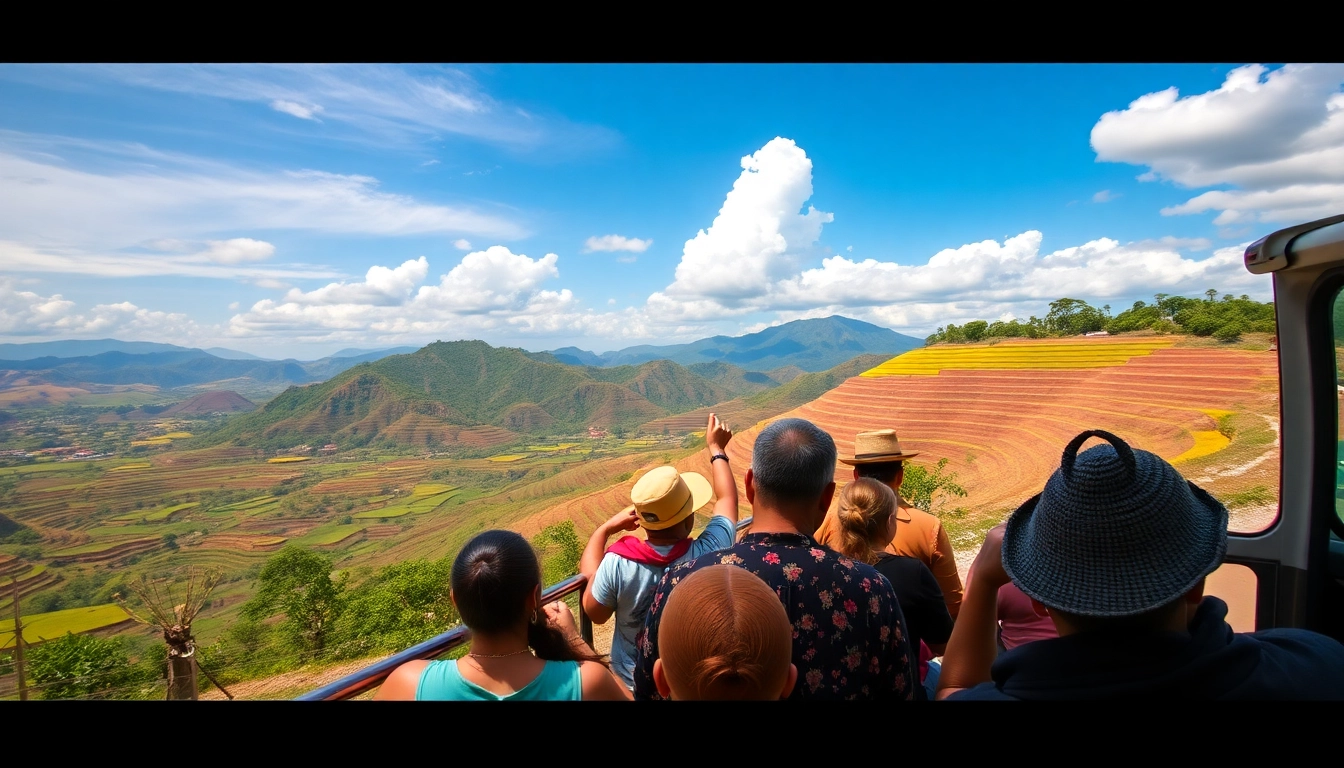Understanding Different Types of Tours in Indonesia
Indonesia stands out as one of the world’s most diverse and culturally rich countries, offering an array of unique travel experiences through its various tour opportunities. Whether you’re an adventure seeker, history enthusiast, luxury traveler, or nature lover, Indonesia’s expansive archipelago provides an endless selection of tours tailored to different interests and preferences. Comprehending the various types of tours available not only enhances your travel planning but also guarantees a memorable and authentic experience. This comprehensive guide examines the primary categories of tours in Indonesia, offering insights on what to expect, how to choose the right experience, and practical tips to optimize your journey.
a. Cultural and Heritage Tours
Indonesia’s millennia-old history and diverse cultures make cultural and heritage tours a compelling choice for travelers keen to immerse themselves in local traditions, architecture, and crafts. These tours typically include visits to UNESCO World Heritage sites, ancient temples, traditional villages, and museums that showcase the archipelago’s rich past.
Popular destinations for cultural tours in Indonesia encompass Borobudur and Prambanan temples in Java, Ubud’s artistic villages in Bali, and the traditional Toraja villages in Sulawesi. Such experiences often involve guided walks through historical sites, participation in local rituals, and interactions with indigenous communities.
To truly benefit from cultural tours, travelers should engage with knowledgeable guides who can narrate the historical context and significance of each site. Participating in local customs, such as traditional dance performances or crafts workshops, also enhances cultural understanding and appreciation.
These tours are particularly suitable for history buffs, cultural explorers, and those seeking meaningful connections with Indonesia’s diverse traditions. They often include opportunities for home-stays or community tourism, fostering direct engagement with local residents and promoting sustainable tourism practices.
b. Adventure and Nature Tours
For adrenaline junkies and nature lovers, Indonesia offers a vast playground of adventure and eco-tourism experiences. From scaling active volcanoes to diving in coral-rich waters, these tours promise exhilarating activities set amidst some of the world’s most breathtaking landscapes.
Notable adventure tours include trekking Mount Rinjani on Lombok, exploring the lush rainforests of Sumatra, surfing at renowned beaches in Bali, and exploring Komodo Island to witness the legendary Komodo dragons. Water-based activities like snorkeling and diving are prevalent in places like Raja Ampat and Wakatobi, known for their vibrant marine biodiversity.
Adventure tours generally require a moderate to high level of physical fitness and sometimes specialized gear or trained guides. Many operators offer package deals that include equipment rental, safety instructions, and local guides to ensure safety and enrich the experience.
Eco-tourism is also a significant aspect of adventure tourism, emphasizing sustainability and minimal environmental impact. Tourists can participate in conservation activities, such as coral reef restoration or jungle reforestation projects, adding a meaningful dimension to their adventure.
c. Luxury and Private Tours
Luxury and private tours cater to travelers seeking comfort, exclusivity, and personalized experiences. These offerings often include private guides, bespoke itineraries, luxury accommodations, and VIP services that elevate the overall travel experience.
Examples include private yacht charters around Raja Ampat, exclusive cultural jet-sets in Bali’s luxury villas, or bespoke adventure trips tailored to individual preferences. Such tours ensure privacy and flexibility, allowing travelers to design their itineraries without the constraints of group schedules.
Luxury tours often incorporate high-end amenities, fine dining, and seamless logistics management. They are ideal for honeymooners, high-net-worth individuals, or those celebrating special occasions who prioritize comfort and exclusivity.
When selecting luxury tour providers, it’s essential to verify their reputation for quality service, safety standards, and attention to detail. Many providers also emphasize sustainability by partnering with eco-conscious resorts and local artisans, ensuring environmental responsibility alongside luxury.
2. How to Choose the Best Tour Operator in Indonesia
a. Reputation and Customer Reviews
Selecting a reputable tour operator is fundamental to ensuring a smooth, enjoyable experience. One of the most reliable indicators of quality is customer reviews and testimonials. Online platforms like TripAdvisor, Google Reviews, and specialized travel forums provide insights into previous travelers’ experiences.
Look for operators with a consistent high rating and positive feedback regarding punctuality, professionalism, knowledgeability, and customer service. Be wary of overly generic reviews; instead, seek detailed comments that describe specific experiences.
Additionally, a seasoned operator often has established partnerships with local hotels, service providers, and guides, which facilitates smoother logistics and better deals for travelers.
b. Certification and Experience
Certification from recognized tourism authorities, such as the Indonesian Ministry of Tourism or international bodies like IATA, adds a layer of trust and credibility. Experienced operators with a long track record tend to have well-developed safety protocols, expert guides, and crucial local knowledge.
When evaluating tour operators, inquire about their experience in handling specific tour types you’re interested in. For instance, if you’re interested in adventure tours, ensure they employ trained guides with safety certifications. For cultural tours, guides with academic backgrounds or deep local knowledge can enrich your experience.
It’s advisable to request references or case studies of previous tours similar to what you seek, especially for complex or high-value arrangements.
c. Customized Tour Services
The ability to customize your tour is a key differentiator among top operators. Personalized tours cater to your specific interests, pace, and budget, creating a more memorable experience.
A reliable operator should listen carefully to your preferences and craft an itinerary that balances must-see destinations with hidden gems. Customization might include special dietary requirements, private transport, or exclusive access to certain sites.
When approaching potential operators, ask about their flexibility, willingness to adapt itineraries, and their approach to tailoring experiences. Transparent communication and detailed planning are signs of professionalism.
3. Essential Planning Steps for a Memorable Tour
a. Budgeting and Cost Management
Establishing a clear budget is the first step towards effective tour planning. Indonesia offers options for all budgets, from budget backpacker trips to luxury escapades. Be transparent with your chosen operator about your financial limits to receive tailored recommendations.
Consider all potential expenses, including accommodations, transportation, entry fees, meals, tips, and souvenirs. Factor in hidden costs such as airport transfers or special excursions not included in standard packages.
To optimize spending, compare packages across different operators, read reviews regarding value for money, and seek bundled deals or discounts for multiple services booked together.
b. Itinerary Customization
A well-planned itinerary balances must-visit sites with relaxed pacing and personal interests. Flexibility allows you to explore spontaneous opportunities or spend extra time in preferred locations.
Prioritize key destinations, but also leave room for off-the-beaten-path discoveries. Incorporate diverse activities—cultural visits, nature expeditions, culinary experiences, and leisure periods.
Collaborate with your operator to sequence activities logically, reducing transit times and maximizing enjoyment.
Technology tools like travel planning apps, digital maps, and real-time updates can further help manage your itinerary effectively.
c. Visa and Travel Documentation
Understanding visa requirements and ensuring all necessary travel documents are prepared in advance is crucial. Indonesia offers visas on arrival for many nationalities, but some travelers may require visa issuance beforehand.
Check the latest regulations related to your nationality, vaccination requirements, and any special permits for certain regions (e.g., conservation areas). Accurate documentation prevents travel disruptions and security issues.
Your tour operator can assist with processing visas or providing relevant documentation, especially for group or long-term tours.
4. Optimizing Your Tour Experience with Local Insights
a. Cultural Etiquette and Local Customs
Respect for local customs enhances interactions and enriches your experience. Indonesian culture varies among regions, with customs related to dress, greetings, and behavior.
For example, modest dress is essential when visiting religious sites like mosques or temples. Learning basic phrases in local languages (Bahasa Indonesia, Balinese, Javanese) demonstrates respect and fosters goodwill.
Your guide can provide insights into appropriate etiquette and help navigate cultural sensitivities, thereby avoiding misunderstandings.
b. Best Seasonal Travel Periods
Indonesia’s tropical climate means it has distinct dry and rainy seasons, directly impacting tour conditions. The dry season (May to September) generally offers the best weather for outdoor activities and travel comfort.
Traveling during peak seasons ensures optimal weather but also means higher prices and crowds. Shoulder seasons (April and October) can offer a balance of good weather and lower costs.
Consider regional variations; for instance, Bali and Lombok have different monsoon patterns. Consulting local experts or your tour operator can help pinpoint the best travel window based on your destination.
c. Must-Visit Destinations in Indonesia
To maximize your tour’s value, prioritize renowned destinations such as Bali’s beaches and temples, Jakarta’s vibrant city life, the serenity of Lake Toba in Sumatra, or the unique Komodo National Park. Each region offers distinct landscapes and cultural experiences.
Also, explore lesser-known areas like the traditional villages of Minangkabau, the biodiversity-rich rainforests of Kalimantan, or the pristine islands of Wakatobi for authentic experiences away from tourist crowds.
Engaging with local guides ensures you discover hidden gems and genuine cultural narratives that standard tours may overlook.
5. Measuring Tour Success and Gathering Feedback
a. Tracking Customer Satisfaction
Post-tour feedback is essential for understanding the success of your journey and for operators to improve their services. Utilize surveys, direct conversations, and digital reviews to gather insights.
Metrics such as overall satisfaction, punctuality, guides’ professionalism, and itinerary fulfillment reflect the operational quality and travel experience.
Implementing regular feedback systems allows continuous improvement and helps future travelers make informed decisions.
b. Collecting Passenger Testimonials
Testimonials provide authentic accounts of travelers’ experiences and add credibility to your tour services. Encourage visitors to share their stories on social media, review sites, or your company’s website.
Highlighting positive experiences, especially those demonstrating unique or personalized features, can boost your reputation and attract new clients.
Ensure to acknowledge and respond to feedback, addressing concerns transparently and professionally.
c. Improving Future Tours Based on Feedback
Use collected data to identify common strengths and improvement areas. Conduct periodic evaluations of guides, logistics, and itinerary relevance.
Incorporate suggestions for new destinations, activities, or service enhancements based on traveler insights. Investing in staff training, updated equipment, and local partnerships fosters higher standards.
Continually adapting your offerings ensures relevance, customer satisfaction, and competitive advantage in the dynamic Indonesian tourism market.

